As someone who works with teams and individuals on changing how they approach software development, I recently thought back to a model that originally came from the family therapist Virginia Satir. She used the model to illustrate how humans cope with change, and much has been written about it before. A write-up that’s often used in the Agile Software Development community is https://stevenmsmith.com/ar-satir-change-model/
In addition, a very detailed description is published at http://www.satirworkshops.com/workshops/balancing-act/satir-change-model/
Sadly, the images in that article don’t really show up in context, so I decided to re-create them and produce them in somewhat higher resolution – and I will use those re-creations here.
Normally the model is used to talk about how individual people react to change. It starts with a “Late Status Quo”, where our performance in whatever domain is hovering around a certain level:
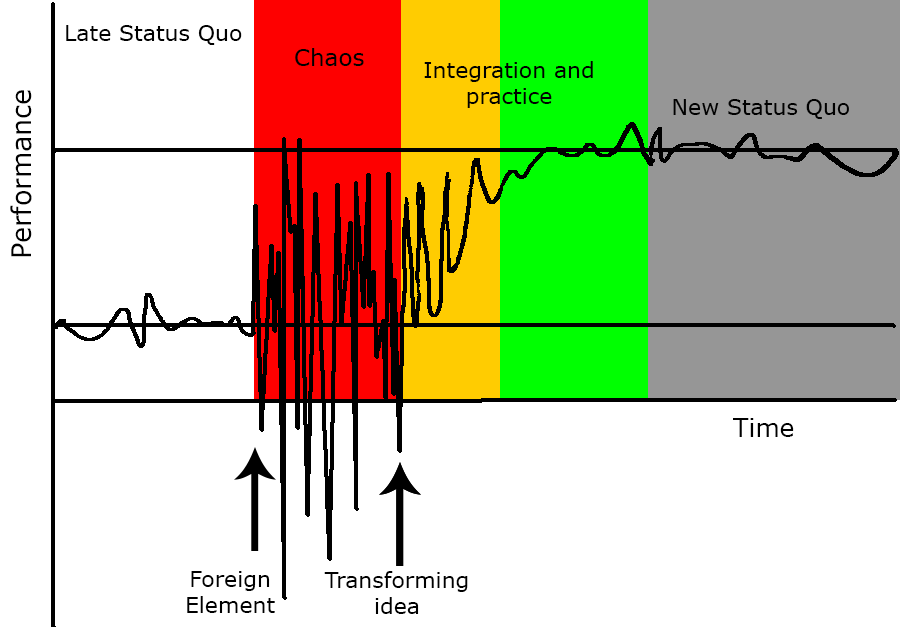
This phase may last a while:
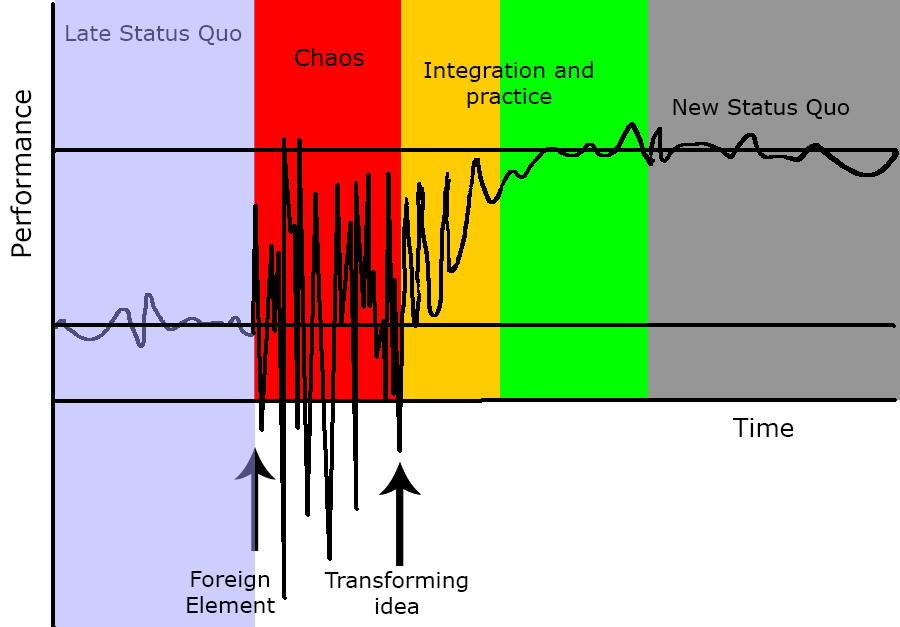
At some point, a change of some sort happens, a “Foreign Element” shows up. That could be an unusual new idea, a new person joining a team, or a new demand placed upon an employee:
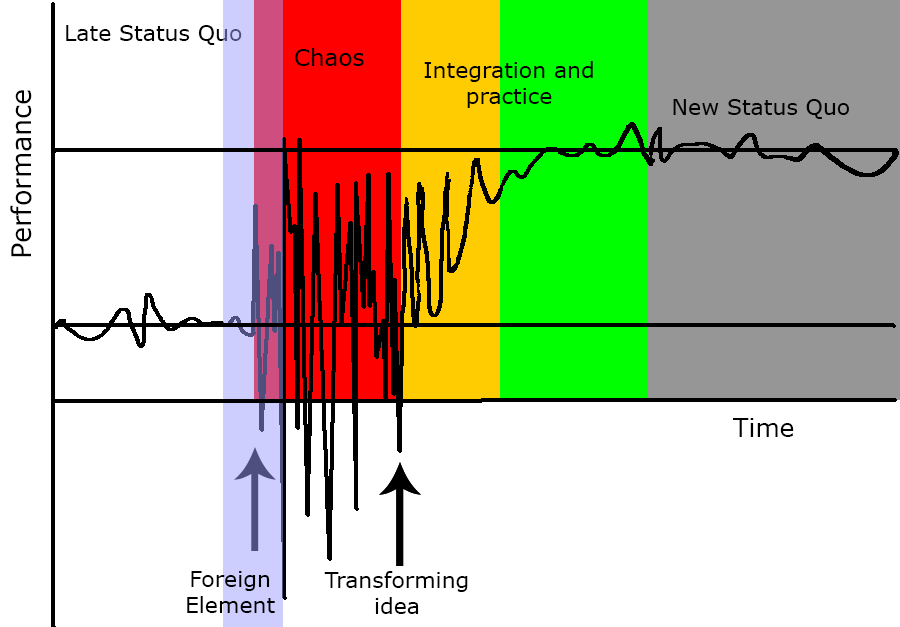
The normal result from the introduction of this Foreign Element is that our our performance gets thrown into chaos:
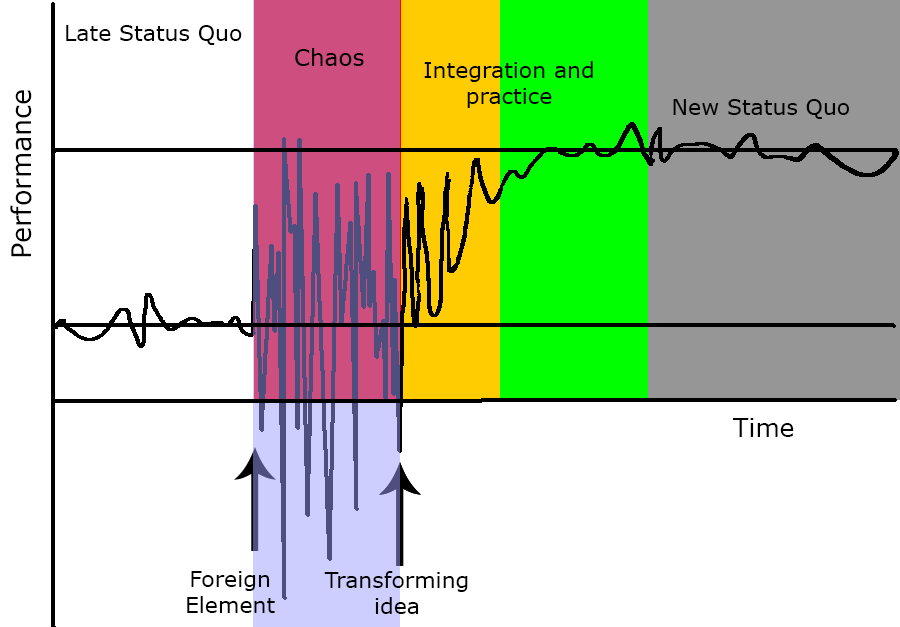
How long the chaos will last is unknown.
While I’m writing this, the globe we live on is swept up in a pandemic of a viral infection outbreak called Covid-19. The viral infection has essentially caused the psyche of the entire population on earth to plunge into the “Chaos” phase all at once, and all over the planet.
People are naturally afraid of many things in this phase (contracting the invisible virus through non-symptomatic carriers, having to shelter in place at home, losing income, being unable to pay bills, etc.) Many have no way of working while the pandemic persists.
Others work in the “knowledge” domain, and are being instructed to conduct their business from home via the Internet, essentially having to become remote workers overnight. For those people, the foreign element is not only related to fears, but also to having to develop new skills and social “online” practices in a hurry. This exacerbates the feeling of chaos and mixes in a great deal of anxiety.
What is needed to get out of the chaos is a “Transforming idea”, an insight into how the new situation can be tackled, or a new skill that can be learned to make one feel more competent and confident:
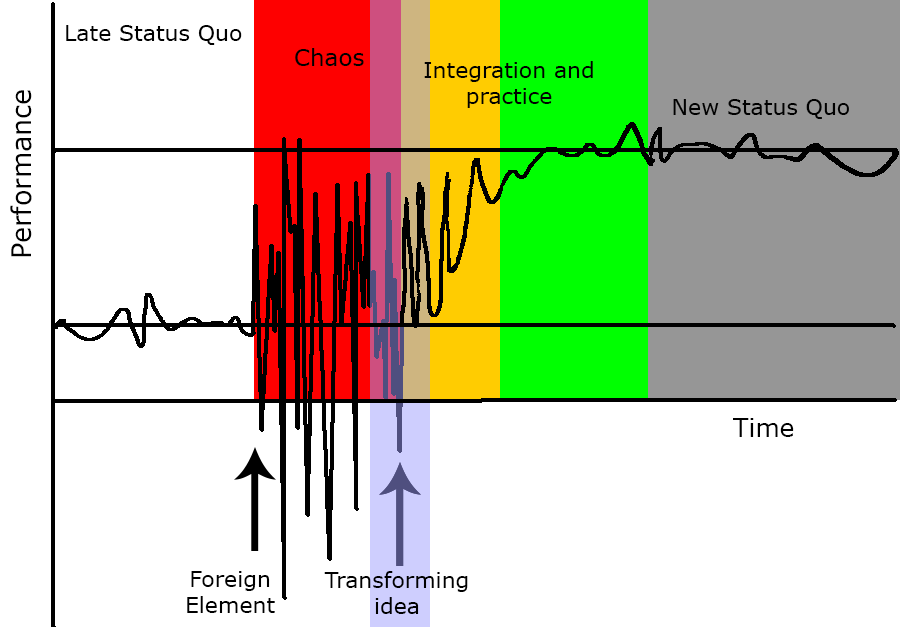
Once this Transforming Idea exists, we move into the phase of “Integration and practice”, where our performance still oscillates wildly as we try on the new idea, or build up new skills:
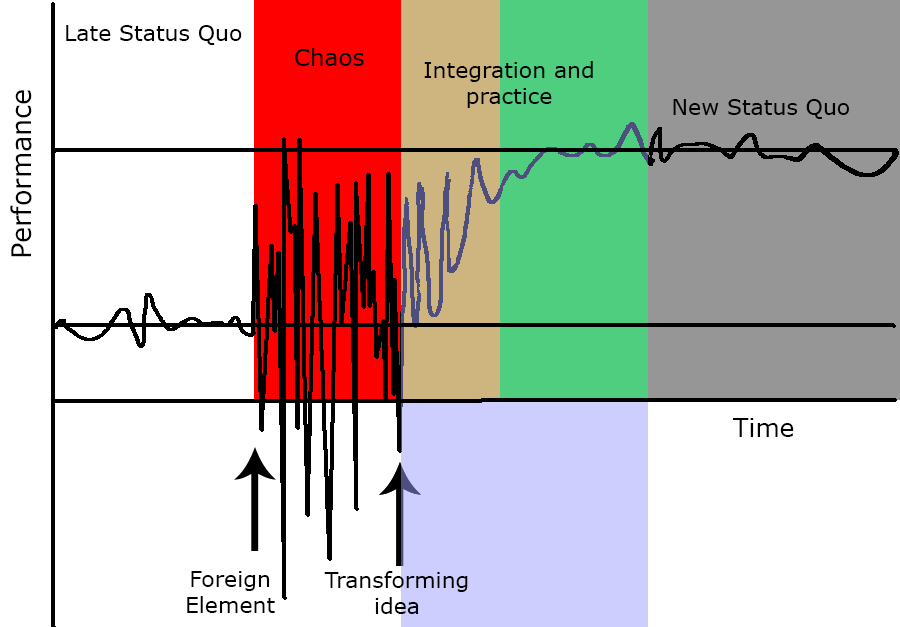
With repetition and repeated practice, we slowly arrive at a “New Status Quo”, where our level of performance is (hopefully) above what it was before, since we are now more capable, and we experience natural oscillation around a new “normal”:
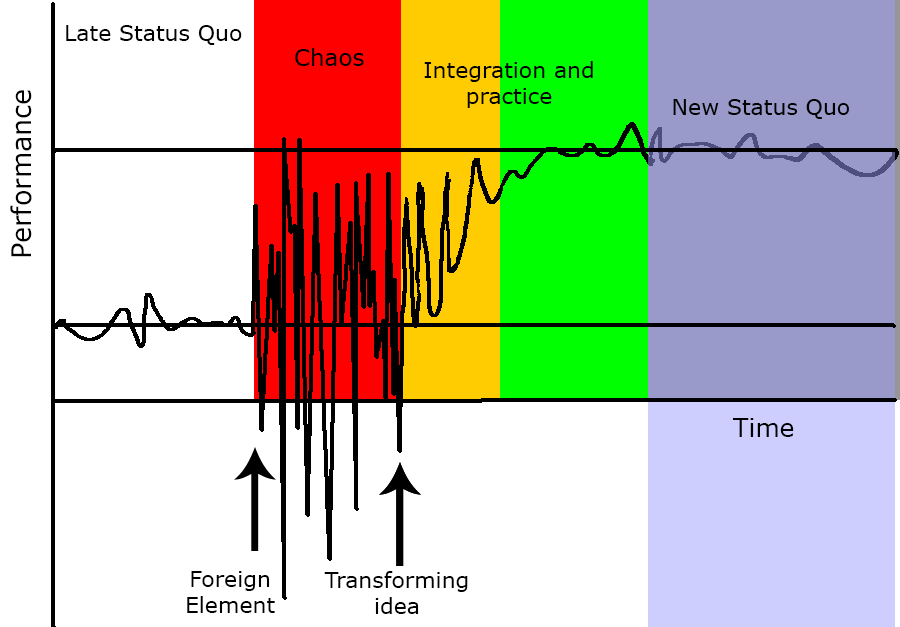
In the case of the Covid-19 pandemic, one of the transforming ideas to deal with the global outbreak is “social distancing” (more appropriate would be to call it “physical distancing”), where people avoid physical contact and close proximity to others to prevent transmission of the virus in the population.
Unfortunately that idea triggers additional chaos for those people who are being asked to become remote workers “over night” because they mostly work in intellectual endeavors. They are now asked to learn how to function well in an environment that is mostly unfamiliar to them, where social norms are not fully established, and new habits are difficult to form. This has given rise to many, many tips and articles being published online, laying out a plethora of Transforming Ideas to choose from, inviting people to join free sessions to learn new skills in a hurry, and all kinds of real-world training (and conferences) moving online. All of that is offered with the best of intentions – and without it we’d be much poorer off in terms of having Transforming Ideas available.
But as the Satir change model shows, integration and practice will take time. Enlightened companies and managers will take that into account and help their employees calm the fear and anxiety that is swirling all around. One key component to helping everyone work through the current situation is to realize that it is completely normal for people to react this way, and to reassure them that there is patience and a supportive stance that they can rely upon to calm some of the chaos.

Lorraine Aguilar says:
Interesting and serendipitous model. I first heard of Virginia Satir when I started working in China back in 2014. The Satir method for family counseling is hugely popular in China. The organization that hired me to deliver Nonviolent Communication training made most of their revenue doing Satir training.